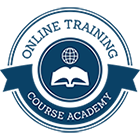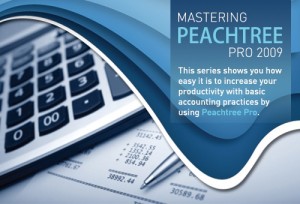Product Description
A Level eLearning course in English Literature is to inculcate the ability of examining literary texts and discussing complex literary arguments with apt technical terminology. It is to increase your understanding of literary texts and their relevance in a wider context. By pursuing this home study course, the awareness of literary techniques and traditions are enhanced.
If you have an interest in reading and writing, you will be able to acquire an edge over others during the exams.
A deep understanding of historical as well as political theory, along with awareness of artistic and creative techniques and traditions is gained when you opt for this distance learning course. Thus, you will be able to answer A Level English Literature questions that ask you to describe contextual issues in detail. Furthermore, you will become proficient in commenting on the significance or typicality of literary texts that were written during a certain time period or in a specific situation.
A level online course in English Literature will not only make you study literary texts, but also provide you a knowledge to comprehend the meaning of any texts and learn critical writing. You will be pushed to inculcate the habit of reading text other than the courseware of A Level course. With this habit of reading myriad topics, you will come across variegated genres and subjects and cultivate an independently inspired reaction to the topics included in the course.
By opting for this programme, you will go through various texts that will help you in succeeding in exams and coursework that is evaluated. Moreover, you will be able to draw parallels and comparisons between various types of texts. On completion of this online programme, you will have the skills needed to give appropriate responses to the themes and issues handled by authors in their texts.
Entry Requirements
Basic English reading and writing skills, as full tutor support is given.
Whats Included
Learning documentation, Online Resources and Tutor support for 2 years.
Course Study Format
Course will be delivered online.
Courseware Support
The biggest advantage of studying with us is that using your unique student account, you can immediately access the course materials online and submit all the question papers to the tutor online. On submission of question papers, you will immediately, receives the email containing the results and feedback.
Study Hours
Study hour is dependent upon the dedication and grasp towards the learning concepts mentioned in the course material. Furthermore, at the end of each lesson there is a question paper that needs to be completed and returned to the tutor.
Learning Hours
Approximately 76 hours.
Assessment Method
The Examination:
The course is examined in below components:
A maximum of 70 marks will be given to the extended essay. Candidates’ work is scored according to the ways in which it has met the relevant Assessment Objectives determined by the examining board (outlined below).
AS + A2 Assessment Objectives
Candidates are required to meet certain critical standards in their coursework for AS and A2 Level. These Assessment Objectives (AOs) are specified as follows:
AO1: Candidates are required to articulate creative, informed and relevant responses to literary texts, using appropriate terminology and concepts, and coherent, accurate written expression. (30%)
AO2: Candidates must demonstrate detailed critical understanding in analysing the ways in which structure, form and language shape meanings in literary texts. (20%)
AO3: Candidates should explore connections and comparisons between different literary texts, informed by interpretations of other readers. (30%)
AO4: Candidates are required to demonstrate understanding of the significance and influence of the contexts in which literary texts are written and received. (20%)
Exams would need to be carried out at an approved examination centre. Please contact us for assistance.
Exams
Exam vouchers supplied with our courses must be used within the duration of your course. Exam Vouchers become invalid once the course has expired.
English Literature (AS)
Unit 1 – Texts in Context: World War One Literature
Assessment: 2 hour examination
Unit 1 provides a thorough introduction to the contextual study of literature. The focus on World War One literature allows candidates to explore the different ways in which key themes have been handled by different authors. Analysis depends on a firm understanding of historical issues and requires students to demonstrate an ability to synthesise close reading of texts with their wider contextual knowledge. This unit is closely bound with the poetry of the period, but demands that students are able to draw parallels and make critical comparisons across genres, genders and time. As well as the ‘core’ poetry text, candidates study a dramatic text and a novel.
Unit 2 – Creative Study: World War One Literature
Assessment: coursework portfolio (2 essays – approx. 1000-1250 words each).
Following the contextual study of Unit 1, candidates are required to study one novel and one drama text, each handling the same period, in depth. Candidates will be assessed according to two pieces of work, forming a coursework portfolio. Candidates will be asked to read actively, providing a creative response to each of the texts. The focus of this unit is on the individual’s interpretation, designed to encourage an awareness of the creative aspects of literary criticism.
English Literature (A2)
Unit 3 – Reading for Meaning (‘Love Through the Ages’)
Assessment: 2 hour examination
Unit 3 requires candidates to approach three different texts (one poetry, one prose and one drama text) according to the ways in which the authors have handled the central theme of ‘Love Through the Ages’. As the theme title suggests, reading will cover a range of periods from Chaucer (fourteenth century) to the present day. The theme of love is not restricted to romantic love, but will also invite comparison with courtly, platonic and familial love. This will allow candidates to demonstrate their comparative critical skills, examining the contrasts and similarities between a broad range of texts.
Unit 4 – Extended Essay and Shakespeare Study
Assessment: extended coursework essay (3000 words)
The final unit of the AQA English Literature A Level gives students the opportunity to demonstrate their critical skills in a piece of extended writing (3000 words). With a focus on one Shakespearean text, candidates are invited to provide a comparative study against two other texts, exploring theme, form, style and possible literary interpretations. This unit demands that candidates demonstrate their research abilities, in contextual terms and in terms of their understanding of critical history and alternative interpretations. The process of preparing writing an extended piece of analytical criticism is an essential skill and can be translated to further academic work in any of the humanities. The essay is the culmination of two years’ work at A Level and presents candidates with an outlet for all of the skills they have acquired over the course.
Job Prospects
Become fully trained and substantially improve the chances of employment or earn more money!
Qualification NVQ Level 3
Fully recognised UK Qualification. On completion of this course you will be awarded with a Diploma, which is an NVQ Level 3 qualification. It will be awarded by a UK accredited body.
Certificates
Upon completion of the course, you can download the completion certificate as well as any other qualifications you have been awarded.
A Level in English Literature
Course Completion Certificate
*Please note, unless stated otherwise or included in package, our online courses only offer course completion certificates ( £10 fee) and in all cases official testing (at a charge made by testing centre) is required to gain officially certified recognised qualifications.
Award
On completion of this course you will earn an A Level in English Literature
AS and A2 in English Literature. On successful completion of both the AS and A2 courses, students will receive a full A Level qualification in English Literature.
(Specification: AQA GCE, AS and A Level English Literature A.)
Course Information
Please note that the registration to the On Campus student community and licence to print the study materials is included in the course fee. The licence is only for you print, therefore you have to ensure proper availability of cartridge and papers to print the full course materials, if required.
You need to have either of the following packages to access the On Campus area:
• Windows: Windows 98, 2000, XP, Vista, Windows 7 – Acrobat Reader 4.0 and above
• Macintosh: Mac OS X, Mac OS 9.2 – Acrobat Reader 4.0 and above
In the student ‘On Campus’ you can also be a take part of the student chat room and forums, as part of our online student community.
Once enrolled to the online programme, the username and password to access the On Campus area will be sent within 5 working days.
Students are required to arrange and pay for their examinations and manage the course work element, if the subject requires. Students must check the relevant examination board website for further information and final examination sitting dates for the specification.
Textbooks
Unit 1 LITA1
Barker, Pat, Regeneration (Penguin, 2008 [1991])
Curtis, Richard and Elton, Ben, Blackadder Goes Forth (Penguin, 1989)
Gardner, Brian (ed.), Up the Line to Death ? The War Poets 1914-1918 (Methuen, 2007 [1964])
Reilly, Catherine (ed.), Scars Upon My Heart ? Women?s Poetry and Verse of the First World War (Virago, 1981)
Unit 2 LITA2
Faulks, Sebastian, Birdsong (Vintage, 1994)
Sherriff, R.C., Journey?s End (Penguin Classics, 2000 [1929])
Unit 3 LITA3
Barnes, Julian, Talking it Over, (Picador, 1991)
Chaucer, Geoffrey, The Canterbury Tales, trans. Nigel Coghill (Penguin, 2003 [1951])
Shakespeare, William, Twelfth Night, or, What You Will (ca. 1601)
AQA A2 focuses strongly on individual interpretation; the choice of wider reading will not be restricted to a list. The AQA syllabus does not prescribe particular texts for wider reading for this unit. Students are encouraged to determine their own private study texts, related to the topics of Love through the Ages. Because the
It is advisable for students to be familiar with selected sonnets by Shakespeare, for instance, which will be invaluable for the two earlier texts by Chaucer and Shakespeare. It is also recommended that students read at least one modern novel which handles the theme of love in some way.
You can also contact the tutor if he/she feels the need to practice more in any of the areas covered in this course.












